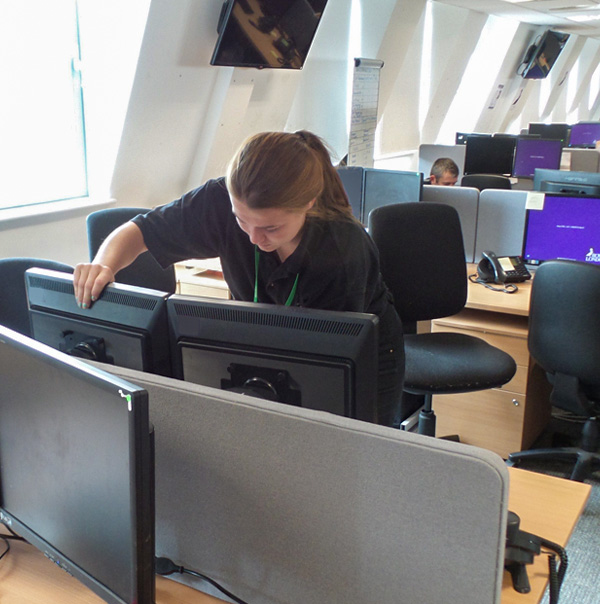Relocating a business is a significant decision that requires careful planning, strategic thinking, and seamless execution. Whether you are moving to a new office space in the same city or expanding your operations to a different location altogether, the dos and don’ts of business relocation play a vital role in ensuring a smooth and successful transition.
Business relocation can offer numerous advantages, such as accessing new markets, reducing operational costs, improving infrastructure, and accommodating growth. However, it can also pose several challenges and risks if not approached with a well-thought-out strategy. By understanding the dos and don’ts of business relocation, you can mitigate potential setbacks, minimize disruptions to your operations, and maximize the potential for success.
In this comprehensive guide, we will delve into the essential dos and don’ts of relocation that every business owner and manager should consider. From the initial planning stages to the final implementation, we will explore key factors that can make a significant difference in the outcome of your business move.
The Dos of Commercial Relocation
When we talk about the things we need to avoid while carrying out a commercial relocation, it’s important to understand the things you must be doing first. Keep reading to explore the essential steps you should take while carrying out a commercial relocation.
Do Start with a Detailed Plan
The first and most crucial step in any commercial relocation is to create a detailed plan. This plan should outline the objectives, timeline, and budget for the move. Start by identifying the reasons for relocation, such as expanding to a larger space or accessing a new market. Once you have a clear vision, establish a project timeline with specific milestones to keep the relocation on track. Develop a budget that covers all aspects of the move, including packing, transportation, and potential renovations in the new location.
Do Conduct a Thorough Needs Assessment

Do Engage Professional Help
Commercial relocation involves a multitude of tasks and challenges. Engaging professional moving companies can significantly ease the process and ensure a successful move. Hire a reputable commercial moving company with experience in handling business relocations. They will provide expertise in packing, transportation, and logistics, ensuring the safe and efficient transfer of your assets. Additionally, consider working with architects, contractors, and interior designers to assist with office layout and design in the new space. Their expertise can help optimize productivity and create a welcoming work environment for your employees.
Do Communicate Effectively
Effective communication is essential throughout the relocation process. Keep all stakeholders informed about the progress, timelines, and any changes in plans. This includes employees, clients, suppliers, and service providers. Create a communication plan that includes regular updates through emails, newsletters, and meetings. Clearly communicate expectations and responsibilities to all parties involved, ensuring everyone is on the same page. Open and transparent communication will help alleviate concerns, maintain productivity, and minimize misunderstandings during the relocation.
Do Involve Employees
Involving employees in the relocation process can foster a sense of ownership and increase their commitment to the move’s success. Seek their input and feedback regarding the new space, layout, and amenities. Engage them in planning and decision-making processes whenever possible. Provide regular updates on the move’s progress, address any concerns or questions, and involve them in the physical move itself. This involvement will create a positive work environment, boost morale, and facilitate a smoother transition for everyone involved.
Do Update Your Address and Notify the Relevant Parties
Ensure a seamless transition by updating your business address and notifying all relevant parties. This includes clients, suppliers, financial institutions, government agencies, and service providers. Update your website, social media profiles, and all marketing materials to reflect the new address. Arrange for mail forwarding services and update your company’s contact information in online directories. By proactively notifying everyone, you minimize the risk of losing business or experiencing service interruptions due to outdated contact info.
Do Label and Document Your Belongings
Labeling and documenting your belongings before moving can make the relocation process more organized and efficient. Label all boxes and items with the department’s name, employee, or purpose. Also, create an inventory list of all the items being moved.
Do Prepare Your IT Infrastructure
Preparing your IT infrastructure for the move is another essential do of commercial relocation. This includes backing up all critical data and ensuring your IT equipment is appropriately packed and transported. Also, ensure that you have a plan in place to minimize downtime and disruptions to your operations during the relocation.
Do Take Care of Your Employees
Taking care of your employees during the relocation process is critical to ensuring a successful move. Provide them with all the necessary resources and support they need to prepare for the move. Also, ensure that you communicate with them regularly throughout the relocation process to address any concerns or issues that may arise.
The Don’ts of Commercial Relocation
Relocating a commercial business is a complex and demanding task that requires meticulous planning, coordination, and execution. It involves a multitude of moving parts, from logistics and inventory management to IT infrastructure and employee communication. To ensure a smooth and successful transition, it’s important to be aware of the common mistakes that can derail your commercial relocation efforts. Let’s explore the top don’ts of commercial relocation to help you avoid these pitfalls and make your move a success.
Don’t Underestimate the Planning Phase
One of the most crucial mistakes in commercial relocation is underestimating the planning phase. A well-thought-out plan is the foundation of a successful move. Start early and involve key stakeholders from various departments. Create a detailed timeline that includes tasks such as packing, inventory management, transportation logistics, and employee communication. Failing to allocate sufficient time for planning can lead to delays, confusion, and increased costs.
Don’t Overlook the Importance of Budgeting
Commercial relocations can be costly endeavors, and it’s essential to have a realistic budget in place. Don’t make the mistake of underestimating expenses or overlooking hidden costs. Consider factors such as hiring professional movers, acquiring packing supplies, updating IT infrastructure, and potential downtime. Create a comprehensive budget that covers all aspects of the move, and ensure you have contingency funds available for unforeseen circumstances.
Budgeting allows for proper planning and contingency funds to account for unexpected expenses or delays. It helps prevent overspending and financial strain on the business, ensuring a smooth and successful transition without compromising the company’s financial health. Moreover, budgeting provides a clear roadmap for decision-making, allowing businesses to prioritize expenses and make informed choices throughout the relocation process. With a well-defined budget in place, businesses can navigate the complexities of relocating while maintaining financial stability and minimizing the risk of financial setbacks.
Don’t Neglect Communication with Employees
Effective communication with your employees is paramount during a commercial relocation. Don’t make the mistake of neglecting or delaying employee communication. Inform your staff about the relocation well in advance and provide regular updates throughout the process. Address their concerns and provide the necessary resources and support to navigate the transition smoothly. Lack of communication can result in decreased productivity, increased anxiety, and employee dissatisfaction.
Don’t Rush the Selection of a Moving Company
Choosing the right moving company is crucial for a successful commercial relocation. Don’t make the mistake of rushing through the selection process or solely focusing on the lowest price. Research and evaluate multiple moving companies, considering factors such as experience, reputation, insurance coverage, and expertise in commercial moves. Request and compare detailed quotes to ensure you receive accurate estimates that cover all services required for your specific needs.
Don’t Forget to Plan for IT Infrastructure
The IT infrastructure of your business is the backbone of your operations. Don’t make the mistake of leaving IT planning until the last minute. Involve your IT department or an external IT professional early in the relocation process to assess your current infrastructure, plan for the disconnection and reconnection of equipment, and address any potential issues. Failing to allocate adequate time and resources for IT planning can lead to significant downtime, data loss, and disruptions to your business operations.
Don’t Neglect Employee Training
Relocating to a new workspace may require adjustments for your employees. Don’t overlook the importance of providing proper training and orientation for your staff in the new environment. Help them familiarize themselves with the layout, equipment, and procedures of the new location. This will minimize confusion, enhance productivity, and ensure a smooth transition for your workforce.
By investing in employee training, you empower your workforce to navigate the relocation with confidence and proficiency, reducing the learning curve and potential errors. Moreover, training fosters a sense of inclusion, boosts employee morale, and promotes a positive attitude toward the relocation process. It is an opportunity to align your team’s skills and knowledge with the new business requirements, ensuring a successful and seamless transition for everyone involved.
Don’t Forget to Update Your Business Information
Before and after the move, it’s crucial to update your business information across all relevant platforms. Don’t make the mistake of neglecting this important task. Update your address on your website, social media profiles, online directories, business cards, and marketing materials. Notify clients, vendors, and service providers about your new address to avoid missed deliveries, miscommunication, and confusion.
Don’t overlook insurance coverage
Relocating a commercial establishment involves risks such as damage to property, accidents, or loss of assets. Make sure you review your insurance coverage and consider any additional coverage required for the relocation period. Adequate insurance will protect you from unexpected expenses and provide peace of mind.
During a business relocation, insurance coverage plays a critical role in protecting your assets and mitigating potential risks. Moving valuable equipment, furniture, and inventory poses the risk of damage or loss due to accidents, theft, or unforeseen events. It safeguards your business from unexpected expenses, ensuring you can recover or replace damaged items without significant financial strain.
Additionally, insurance coverage can extend to liability protection, covering any accidents or injuries that may occur during the move. By having the right insurance in place, you can minimize the impact of potential setbacks and focus on a smooth and successful transition to your new location.
Don’t delay unpacking and setting up
Once you have completed the physical move, don’t delay the unpacking and setup of your new space. A delay in settling into your new location can disrupt your operations and cause unnecessary stress. Plan and prioritize the unpacking process to ensure a swift transition and minimize downtime.
Don’t neglect post-relocation evaluation
After the relocation, it’s important to evaluate the process and learn from it. Identify what went well and what could have been improved. This evaluation will help you refine your future relocation strategies and ensure a smoother transition in case you need to move again.
Valley Relocation: We Get You Moving!
Commercial relocations are complex, overwhelming, and difficult to manage alone. However, finding the perfect moving company for your business can become a hassle. While some companies might offer simple moving requirements, some companies require more complex procedures.
Businesses with similar issues are often seen trying to find moving companies that can offer undisputed, reliable, and trustworthy moving services. Luckily, Valley Relocation is a reputed local commercial moving company where we offer a range of moving services to businesses, data centers, small offices, hotels, and a lot more.
Whether you need relocation services or just require specialized logistics — our trained staff is always ready to cater to your moving requirements. We provide top-notch services and always leave positive feedback from different clients in the industry. If you want to learn more about our business and how we can simplify your move, make sure you give us a call.





